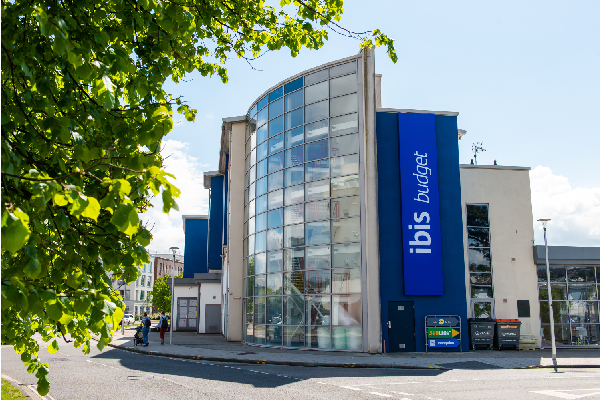London-based AGO Hotels offers a hybrid lease model which delivers a combination of guaranteed rent plus additional profit rent, and continues to grow its portfolio as a landlord-friendly platform enabling stable asset values and cash flow.
By combining the benefits of institutional leases and operational participation, the AGO platform offers a 25-year FRI lease, and profit participation calculated on the basis of each hotel’s EBITDA.
The principals believe the structure aligns the interests of real estate owners and investors with those of the management and brands. It drives long-term added value by maximizing revenues, rents and asset values.
Initially, in November 2020, AGO secured nine leases in the wake of a Travelodge company voluntary arrangement (CVA), which reportedly shaved nearly £150 million (US$204 million) from the chain’s rent bill, with some landlords sacrificing rent payments until 2022. Accor became the operator for the hotels under its ibis budget brand and AGO funded rebranding costs. By September 2021, AGO’s portfolio included 12 hotels across the U.K.
AGO co-founder Lionel Benjamin said Accor partnered into the model because it saw the opportunity to use AGO as an off-balance sheet entity that issues long leases and have Accor brands above the door of these hotels for the next 25 years.

“We launched AGO Hotels during 2020, which many voiced as a bold business move,” Benjamin told HOTELS in September. “We saw the pandemic as an opportunity to address the much-needed change within existing hotel leasing and operating models. Landlords became even more open to new leases during this period, and we were able to establish our hybrid platform combining elements of guaranteed fixed rents and profit sharing, to offer stability and withstand challenging market conditions. Those using our platform benefit from RPI increases in rent, no CapEx concerns, and an opportunity to achieve higher returns and financing, with total landlord transparency. The result is a great incentive to move away from a traditional lease, which through COVID we are demonstrating.”
Having paid rents in full throughout the lockdown, co-founders Viv Watts and Lionel Benjamin expect AGO to grow significantly over the next year in the economy and budget sectors across the U.K. because the AGO model benefits landlords both in valuation and yield terms, as well as downside protection and genuine profit participation.
Here is how the 25-year FRI lease structure is broken down:
- Base Rent: Highly secured base rent with upwards-only RPI rent reviews every 5 years
- Profit Rent: Rewarding owners of outperforming hotels and compensating where hotels have historically been under rented
AGO Hotels leases are fully repairing and insuring and offer:
- A significant % of individual property net operating income paid to landlord
- Guaranteed transparent annual CAPEX investment in participating hotels
- A long-term strategic brand partner, providing initial equity investment for rebranding, working capital, distribution and IT
The challenge for the platform, said Benjamin, remains educating owners and operators about the disruptive model, which, throughout COVID, has paid rent in full. AGO has the advantage of a rent support facility to cover rent if, for any reason, the hotel trading is insufficient to cover the rent. AGO include owners in the hotel’s profits, especially valuable as markets return to normalcy as COVID becomes less of an issue.

Making sense of AGO’s model
After a long career with Hilton and a stint with the Ability Group as head of the hotel and leisure division, in 2013 Benjamin joined Topland at board level to develop a £1 billion (US$1.4 billion) hotel portfolio. In 2015, he led the strategy which brought together a 28-hotel portfolio under the Hallmark and Hallmark Inns brands.
Benjamin said the AGO model gives landlords a certainty with rent payments, which, during COVID, was clearly no longer available in any real estate asset class. “We created this model to give landlords a certainty with rent payments, which clearly was no longer available through other platforms. We created a threshold of rent at a tenant affordable level, which was only paid after we’d had a CapEx reserve put aside for the particular owner’s property,” Benjamin said. “And then only after we paid the rent, we’d take a fee, so landlords were able to feel a bit more comfort the threshold was correct and fair.”
Benjamin added that banks see there is a lot of sense and financial acumen behind the model. “They like the transparency, which historically they never had, because they would never see a P&L,” he said. “They like the fact we weren’t going to get paid anything unless we performed. So, they could see the investor was ultimately very protected.”
When it comes to paying profit rent, Benjamin said initial indications have AGO hoping to pay some by Q4 based on Q3 performance.
With news spreading, Benjamin further projects taking AGO to 50 hotels in two years. He’d like to move further into Europe, beyond the U.K., with the concept.

